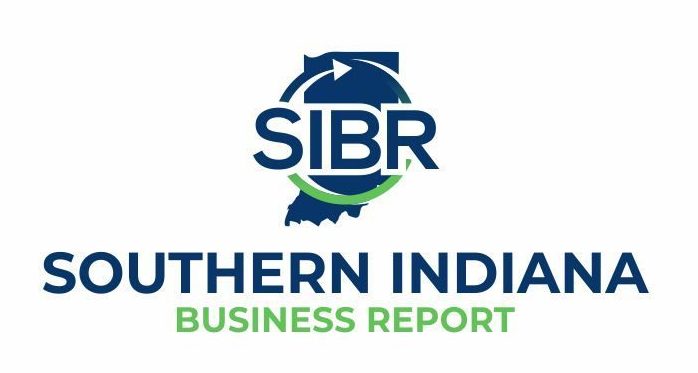By Michael Hicks | Ball State University
The U.S. Congress is turning its attention to something called the Build it Back Better (BBB) bill. This is a good time to think critically about the political economy of our national debt. It is good to start with some facts and acknowledge what we do and do not know about the economic consequences of a large public debt. A big part of this is discussion must be the question of how we tax ourselves to pay for this debt.
Public debts aren’t new, and the U.S. government has spent more than it has received in taxes for almost all of the past half century. Despite our economic cycles, we remain the largest rich economy, with reasonable long-term growth and currency that is the most dominant in world history. Clearly, a rich nation can run a debt for a long time without meaningful consequences.
A nation like ours can also finance big negative shocks, like a world war or global pandemic. We have been successful in paying these back over long periods, financed by sufficient economic growth that our tax revenues exceed spending. However, we can also hold debt for decades, if what we buy is a boost to long-term economic growth.
The composition of debt matters deeply. Spending that makes us more productive because of better public capital or a more educated workforce often pays for itself through increased GDP that is then taxed. Still, a great deal of government spending doesn’t boost the economy and isn’t designed to do so. Social Security, military pensions and much of direct income support for poor people are programs that don’t pay for themselves in new tax revenue or savings elsewhere.
I honestly think there is little disagreement among Americans about these types of programs, or at least the spending portion. Although we may disagree in the details for how these programs are administered and who gets payments, where we disagree the most is how to pay for them.
A small minority in Congress believe this is a moot point because they cling on to something called Modern Monetary Theory (MMT). The basic idea behind MMT is that deficits don’t really matter until they become inflationary. The role of taxes is solely to keep inflation in check. To most people this seems implausible, as it does to the vast majority of economists.
Today’s economic conditions provide a good thought experiment on the reasonableness of MMT. We are in a period of higher prices for everything from food and gasoline to used cars. Suppose the price increases we see from supply chain disruptions turn into full-fledged inflation early next year. Imagine consumer prices rising by 4 or 6% by early summer. To MMT proponents, the way to remedy this is through higher taxes on consumers. And here’s where the thought experiment gets interesting — imagine the current Congress voting to raise taxes if gas is $4.50 a gallon.
You may pause reading long enough to stop laughing. It must be said that Modern Monetary Theory is a “Hee Haw” skit masquerading as sensible economic policy, and therein lies our problem with talking about deficits. The Build it Back Better (BBB) bill has a lot of parts, some of which will appeal to many Americans. However, the tax increases that accompany it won’t come close to paying for it. If it did, then the Congressional Budget Office would’ve been asked to do a full analysis months ago.
The difficult fact is that we cannot tax billionaires or millionaires enough to pay for this bill. To pay for the BBB, we will need a wholesale reworking of taxes. The BBB edges the United States much closer to Scandinavian nations in terms of social spending. To be clear, this is not socialism; Finland, Norway, Sweden and Denmark are not socialist nations. Still, I think few Americans want that type of government. I am old fashioned, and think the best way to prevent something that is unpopular is simply to tell the truth about it.
In order to pay for the large social spending of the BBB, the U.S. will need much heavier, Scandinavian-style taxes. These cannot be levied solely on the very rich, in either income or wealth taxes. We could tax all the billionaires 100% and not pay for year one of the BBB. In fact, the big difference between U.S. and nations such as Sweden and Norway is not how we tax the rich, but how we tax the middle class and the poor.
Right now, the U.S. has a very progressive federal tax. About half of families pay no income taxes. They do pay payroll taxes for Social Security and Medicare, along with state and local taxes, but that raises far too little revenue to pay for the large social programs in the BBB. And, because people can choose not to work or lobby for a myriad of loopholes, we are close to the maximum share of revenue we can raise through income taxes.
In order to pay for the BBB, the U.S. will have to institute broad Value Added Taxes, or VAT. These are essentially a national sales tax that is levied on every exchange, including business-to-business sales. Readers who support the BBB, you should know that the Value Added Tax Rate in these four Scandinavian counties is currently 24 or 25%. To catch up with the Scandinavian countries, the average tax rate on the middle class U.S. family will have to rise by one-third or more. That truth should help frame any future discussion on federal spending.
Michael J. Hicks, PhD, is the director of the Center for Business and Economic Research and the George and Frances Ball distinguished professor of economics in the Miller College of Business at Ball State University.



